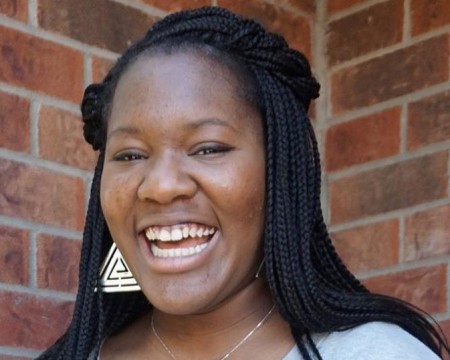
#OscarsSoWhite: Rewarding Black Excellence
The follies of generations past should not rest upon the shoulders of innocent individuals. With the abolition of slavery hundreds of years ago in North America, it seems useless—if not unfair—to blame the actions of White supremacists and slave-owners on their innocent descendants. Is it not?
Of course it is. However, there is an inherent lack of dialogue on current issues that does not utilize victim-blaming to a certain extent. Insofar as they have had no hand in the horrid acts of their forefathers, non-Black people need to yearn for more understanding of the issues people of colour face on a daily basis. This is not because they are responsible for institutionalized discrimination. Rather, if they choose to ignore a society built by their forefathers that is solely for their own benefit, aren’t they doing the same thing? They’re supporting an unjust system.
When #OscarsSoWhite began trending on Twitter after the release of the official nominee list, it came as no surprise. All 20 contenders of major awards are white, yet I simply was not shocked by it. In the wake of the controversy, Spike Lee, Will Smith, Jada Pinkett-Smith, and other prominent players in Hollywood refused to attend the awards ceremony, and called for other artists to do the same. Just yesterday, the Academy of Motion Picture Arts and Sciences announced that they would change their membership rules and system to include more minorities and women. Moreover, the Oscars controversy led me to think: at what point does a Black child become accustomed to the different playing field that they will be subject to for the rest of their life? At what point did I become so desensitized to my talents being undermined, misrepresented, or completely ignored?
As a child, I was unaware of my physical and social differences from my other friends. I grew up in a school and community that boasted incredible diversity, so I did see skin colour. I knew that I was African, and my friends were Arab, Hispanic, European, East-Asian, etc. They looked different from me. But I never saw differences beyond our skin colour. By the age of 11, I began to understand that “not all people are created equal,” largely as a result of remarks made by my friends about my skin colour.
Over the past few years, I have become increasingly aware of systematic oppression and institutionalized racism. I became aware of the fact that my non-Black friends didn’t have to have a discussion with their parents about how to carry themselves in a store to avoid being suspected of shoplifting or watching how they dress to avoid being typecast as another “ghetto black person”. Upon entering high school, I began to delve more into poetry, and I learned even more about my identity and about discrimination through the lenses of poets such as Langston Hughes, Crystal Valentine, and Kai Davis. However, I think the most vital lesson I gained was this: Black people are wonderfully multi-dimensional, and it is an incredible disservice to our identities and personhood to be confined to a tragic history. The few times Black people are mentioned in school curricula, we are defined by our struggles. We were slaves, or fugitives in the Underground Railroad, or 1960s civil rights activists.
Yes, these are parts of our history that should not be ignored or erased. But at what point will my skin colour be seen as more than a symbol of oppression—or artistry? Why is it that the most famous Black people my friends know–other than U.S. President Barack Obama–are the likes of Martin Luther King Jr, Rosa Parks, and Harriet Tubman? In the modern era, they recognize names such as Kanye West, Drake, J.Cole, Kevin Hart, and LeBron James. Why is it that Black excellence is restricted to “freedom fighters” or entertainers/athletes? Of course, business moguls and entertainers such as Beyoncé and Oprah Winfrey are at the apex of success in many ways. Their hard work and immense accomplishments should not go unrecognized, because they are the men and women inspiring countless children every day.
Nonetheless, when do we start teaching young Black children that they can also be like Neil DeGrasse Tyson, Maya Angelou, or Dr. Charles Modlin? Why is it that when people read those names they have to “Google” them but don’t have to do the same for Chris Hadfield, Thomas Edison, or Marie Curie? In 2016, Black History Month should explore the scientists, explorers, rulers, and inventors of African or Caribbean ancestry. We shouldn’t celebrate only our “trials and tribulations” or excellence in the realm of entertainment and sports. Black people do fantastic things every day. They are pushing the boundaries of science, technology, literature, art, fashion, and music—and they deserve to be recognized for it. I hope that one day a Black child doesn’t have to search hard to find accomplished people that look like her. I hope that one day children of all races see that they are capable of doing anything—regardless of who they are.
February is Black History Month. I urge you to learn about one prominent or accomplished Black individual who isn’t an athlete, entertainer, or activist. Perhaps you can learn about someone in your own community! The important thing is to see Black people for who they are: people. We are more than statistics of young incarcerated men, or the #BlackLivesMatter movement. We have a diverse, rich history that goes beyond civil rights and slavery. It deserves to be told.
